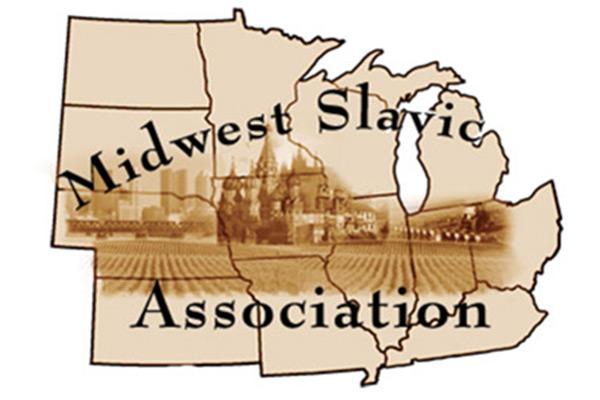
The Midwest Slavic Association and CSEES invite you to attend the rescheduled keynote and plenary panel from the cancelled April 2020 Midwest Slavic Conference. Dr. Anindita Banerjee (Cornell U.) will deliver a keynote address around the theme of "Science and Fiction(s)" with time for Q&A. Following a short break after the keynote, a plenary panel moderated by Dr. Banerjee will build upon the theme and feature three Ohio State faculty members, Drs Nicholas Breyfogle, Andrei Cretu, and Alisa Ballard Lin.
KEYNOTE ADDRESS: 1:00 – 2:25 PM EDT
DR. ANINDITA BANERJEE, CORNELL UNIVERSITY, "ORDINARY APOCALYPSE AND EVERYDAY SCIENCE FICTION"
All imaginations of disaster, Susan Sontag declared in 1964, were but variations of a single fear: the end of the world by a nuclear explosion. In 1984, Jacques Derrida similarly spoke about the "fabulous textuality" by which a "stockpile of metaphors" wielded as much power as actual nuclear warheads in the spaces and practices of everyday life. Embedded in the very foundation of our field, the Cold War's apocalyptic imagination continues to haunt our search for ruptures and revelations, dystopian terrors and utopian awakenings, in a rich corpus of texts once relegated to the margins of (mostly Russian) great literature.
But how relevant is the old apocalypse-- monumental, sublime, all-consuming -- to contemporary students and scholars for whom futurity itself is an increasingly precarious concept? When disasters cannot be deferred to the elsewhere and elsewhen, as the unfolding pandemic continues to demonstrate, how can science fiction speak to its multiscalar, convergent, and constantly mutating dimensions? Is science fiction capable of reckoning with catastrophe that creeps up rather than explodes into view? What kinds of science fictions might emerge from the interfaces where ordinary life exists in close proximity with states of emergency? These questions animate my call for a different modality of reading, researching, and teaching Russian and East European science fiction, one whose potentials do not lie in the politics of hope or despair. Lurking in the margins of both canonical and contemporary texts, they gesture instead towards an ethics and practice for the present continuous and future imperfect.
PLENARY PANEL: 2:35 – 4:00PM EDT
DR. ALISA BALLARD LIN, OHIO STATE UNIVERSITY, “REFLEXOLOGY, MIND-CURES, AND BIOMECHANICS: (PSEUDO)-SCIENCE IN THE AVANT-GARDE RUSSIAN THEATER”
The Russian theater of the early-twentieth century blossomed in dialogue with scientific and pseudoscientific developments, from Stanislavsky’s interest in reflexology to Evreinov’s fascination with the notion of the mind cure. The reliance on scientific ideas not only lent an air of validity to acting methodologies and theories of reception but drove a sense that the theater itself was an experimental laboratory to understand the human body and mind. This talk will analyze some of these points of contact between the theatrical and the scientific to understand why and how the Russian theater of this era was so scientifically driven.
DR. NICHOLAS BREYFOGLE, OHIO STATE UNIVERSITY, "EXPLAINING EARTHQUAKES: THE 1861-62 LAKE BAIKAL DISASTER AND THE MEANING OF NATURE IN IMPERIAL RUSSIA"
This presentation will tell the story of the massive 1861-62 Lake Baikal earthquakes as a window onto the role of natural disasters in the social and cultural lives of the Imperial Russian population and as a way to understand the environmental sensibilities and approaches of the people around Lake Baikal. It will examine the competing efforts and discourses used to explain and understand the earthquakes. Representatives of different religious faiths (Orthodox, Buddhist, and Shamanist, in particular) each attempted to explain the events within the context of their religious worldviews. At the same time, members of the scientific community in Russia sent out multiple teams in an effort to find some “rational, scientific” explanation for the events.
DR. ANDREI CRETU, OHIO STATE UNIVERSITY, "RUSSIA BACK TO THE FINAL FRONTIER: REVIVING THE SPACE AGE IN A COMPLEX GLOBALIZED WORLD"
The Space Age is widely considered to have begun with the launch of Sputnik by the Soviet Union in 1957, but there is no agreement as to when it ended, or what followed it. In the U.S., according to a widely held opinion, the Space Age ended in the early 70’s (with the last Apollo flight) or, at the latest, in 2011 (with the last Shuttle flight) and was replaced by the Digital Age, in which societal change is driven primarily by information technologies. However, there are thinkers, such as Frederic Neyrat, who claim that the grand narrative that has replaced the Space Age and is shaping society and culture today is that of the Anthropocene – an era characterized by profound changes in the biosphere caused by human activity. The post-Soviet development of Russia does not neatly fit into either of these scenarios (although it definitely includes features of both). Rather, societal trends suggest that after a period of crisis and uncertainty, the legacy of the Soviet Space Age has once again become central to Russian identity. This presentation explores some of the technological, cultural, economic and political facets of this development.
This event is free and open to everyone. It is being streamed virtually via a Zoom webinar. Registration is required to attend and you can register via this link. Please note that registration will close on Wednesday, September 9th.
Please check the Midwest Slavic Conference webpage for more details!
Co-sponsored by The Association for Slavic, East European, and Eurasian Studies, Department of History OSU, Department of Linguistics OSU, Department of Slavic and East European Languages and Cultures OSU, Department of Women's, Gender, and Sexuality Studies OSU, the Undergraduate International Studies Program OSU, and University Libraries.
If you have any questions about accessibility or wish to request accommodations, please contact us at csees@osu.edu. Typically, a two weeks' notice will allow us to provide seamless access.
